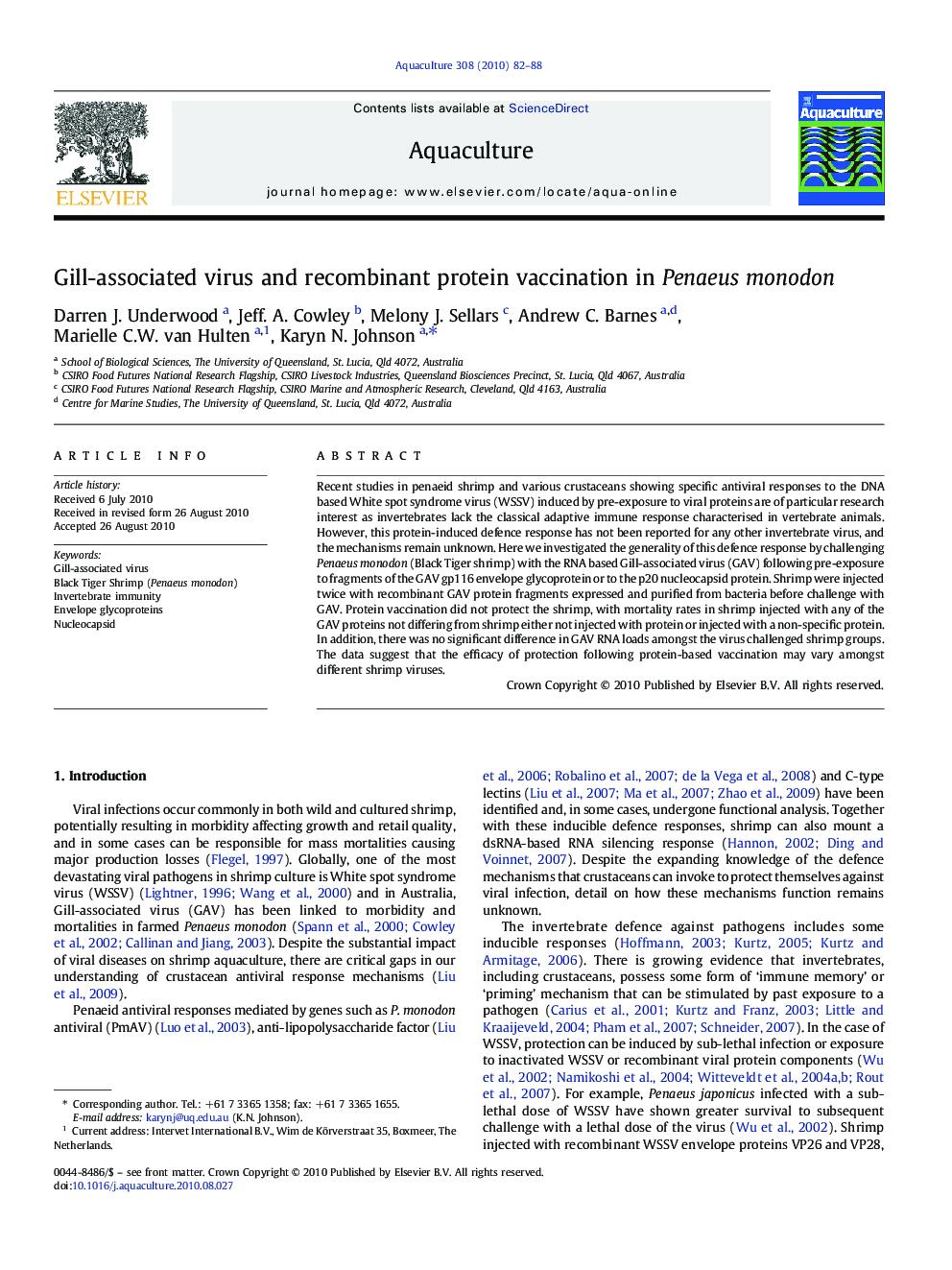| Article ID | Journal | Published Year | Pages | File Type |
|---|---|---|---|---|
| 2423344 | Aquaculture | 2010 | 7 Pages |
Recent studies in penaeid shrimp and various crustaceans showing specific antiviral responses to the DNA based White spot syndrome virus (WSSV) induced by pre-exposure to viral proteins are of particular research interest as invertebrates lack the classical adaptive immune response characterised in vertebrate animals. However, this protein-induced defence response has not been reported for any other invertebrate virus, and the mechanisms remain unknown. Here we investigated the generality of this defence response by challenging Penaeus monodon (Black Tiger shrimp) with the RNA based Gill-associated virus (GAV) following pre-exposure to fragments of the GAV gp116 envelope glycoprotein or to the p20 nucleocapsid protein. Shrimp were injected twice with recombinant GAV protein fragments expressed and purified from bacteria before challenge with GAV. Protein vaccination did not protect the shrimp, with mortality rates in shrimp injected with any of the GAV proteins not differing from shrimp either not injected with protein or injected with a non-specific protein. In addition, there was no significant difference in GAV RNA loads amongst the virus challenged shrimp groups. The data suggest that the efficacy of protection following protein-based vaccination may vary amongst different shrimp viruses.
